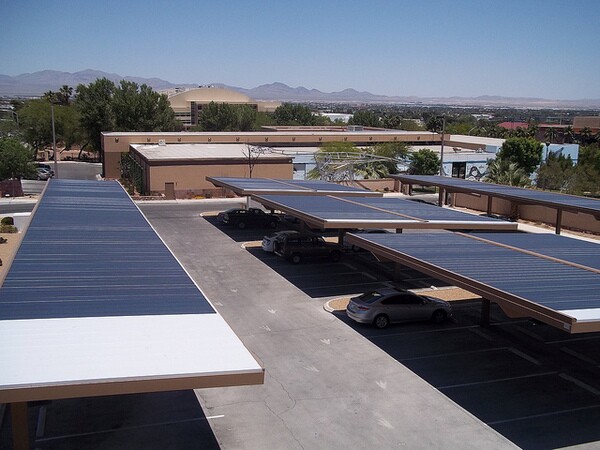Study: Rooftop Solar Customers Don't Raise Costs For Others

A new study commissioned by the Nevada Public Utilities Commission finds that rooftop solar panel owners taking part in the state's ongoing net metering program won't be raising the electric bills of their non-solar neighbors.
The study, conducted by the San Francisco-based energy consulting firm Energy + Environmental Economics (E3), found that despite dire predictions from utilities in other states, net metering customers in Nevada will have "no substantial impact" on costs borne by non-solar ratepayers.
Instead, net metering customers will allow the state savings of somewhere around $166 million in avoided transmission network and generation costs, all of which would have shown up on Nevadans' electric bills.
The study was done as part of a directive from the Nevada legislature to examine the financial effects of expanding the state's net metering program. Until this year, the state's main electrical utility, Nevada Energy, administered net metering programs in which participants had to win a lottery, and which paid out significant incentives to encourage new solar projects.
E3 found that those earlier large incentives did raise other ratepayers' bills slightly. But those incentives are being scaled back as the state revamps its net metering policy to abolish the lottery and open the program to all interested comers. The lower incentives shouldn't affect participation too much: costs to install solar panels on Nevada rooftops have also dropped precipitously, by 25 percent in the last year alone.
But the big savings to non-solar customers comes from avoided costs for power plants and transmission lines. The study found that for every kilowatt-hour the state's utilities buy from rooftop solar customers in 2014 and 2015, they'll be able to avoid buying 2.45 kilowatts of "central station renewables" -- output from the state's big, industrial-scale wind, solar, and geothermal projects.
That means considerable cost savings that can be passed on to non-solar ratepayers.
The study cites a number of variables that could push total costs and benefits of an expanded net metering program into the positive or negative for non-solar customers, but says that regardless of the end result, the actual effect on a typical electric bill will be very small. But the authors say odds are on a slight decrease in overall costs of electricity statewide, a conclusion in stark contrast to the dire predictions of utility companies.
"[B]ecause we find that NEM [net metering] will most likely not increase rates in Nevada," says the report, "it is plausible that NEM will have a positive macroeconomic impact in Nevada."
Sounds pretty much what solar advocates like Vote Solar have been saying about California for some time now.